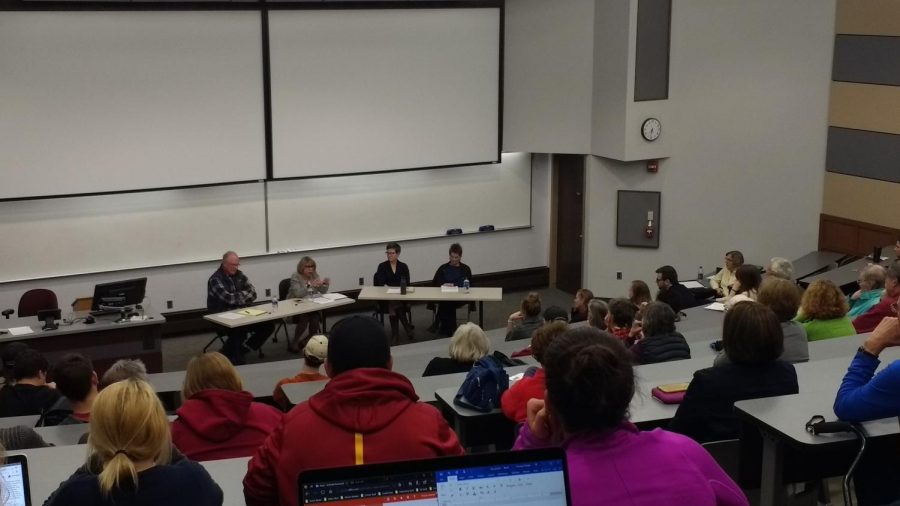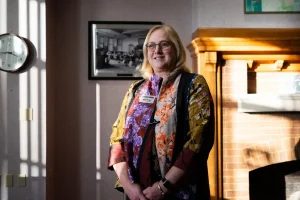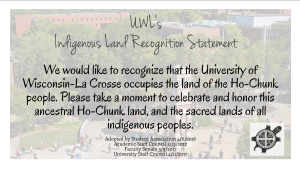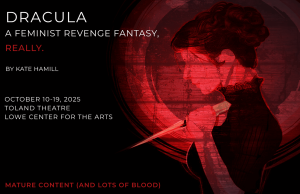Fair Votes, Fair Maps: Redistricting in La Crosse
October 29, 2017
On Oct. 25, the Political Science and Public Administration Association hosted the Fair Votes, Fair Maps: How Partisanship Threatens Democracy event in Wimberly 102 from 7 – 8:30 PM. This event consisted of a panel of four individuals which included Former State Senator Dale Shultz, Organizing for Action of Wisconsin volunteer Amy Dummer, La Crosse County Board Supervisor Maureen Freedland, and Plaintiff in the Gill v Whitford case Emily Bunting.
Kicking off the event, UWL Political Science and Public Administration Lecturer Sam Scinta spoke about the issue at hand as well as what the panelists were going to speak about. According to Scinta, “Every 10 years, we have to redistrict our legislative districts in the state both for state legislatures and for our national congress. We do that first by apportioning on the national level and then we redistrict.”
The issue with redistricting right now is that there is an impact on local communities due to a partisan influence on the redistricting process. Freedland commented on this issue saying, “The lines were needlessly complex at the state level, overly partisan, and really were not in the spirit of competition and democracy.”
A quick review on voting maps in Wisconsin: voting maps indicate which areas will count for what portion of the electoral vote and are determined by state legislature and the national congress. The concern this panel brings up is that a partisan (meaning affiliation with a political party) influence could shift the lines of these maps in favor of one political party over another. This is what is called gerrymandering: the manipulation of voting boundaries to favor one party over another.
“Right now, as it stands, we have a state redistricting plan that’s been adjudicated as unconstitutional by the district court [which] is what is [being] appealed to the supreme court,” Scinta stated. “There’s no doubt that this is perhaps one of the biggest cases in front of the Supreme Court during this particular term because of its potential impact.”
What Freedland covered during her portion of the event were the following issues: How the state left the locals out of the process, how our local county process has been different from the state process, and some of the extreme impacts that were felt locally.
“You’ve heard about gerrymandering so you know the outcomes which are: a lower voter turnout, less competitive districts, and they have less reason to feel the need to go to the poles,” stated Freedland.
Issues such as gerrymandering and other political concerns pop up which need to be talked about. “Our goals are to educate people on the benefits of non-partisan redistricting, and also to contact our state reps to hold hearings on Senate Bill 13 and Assembly bill 44,” Dummer states. “We help people organize and facilitate events, such as town halls like this, write letters to the editor, get in contact with any of our state reps and start conversations with people around us.”
If you want to voice your own concern about this issue, reach out to your state reps and make your voice heard. You have the power to push change!






